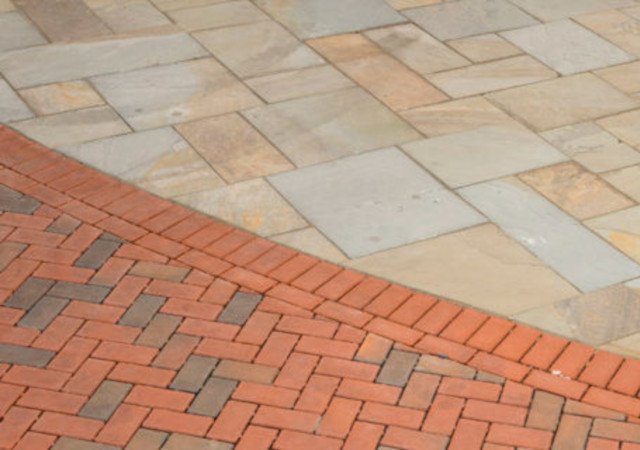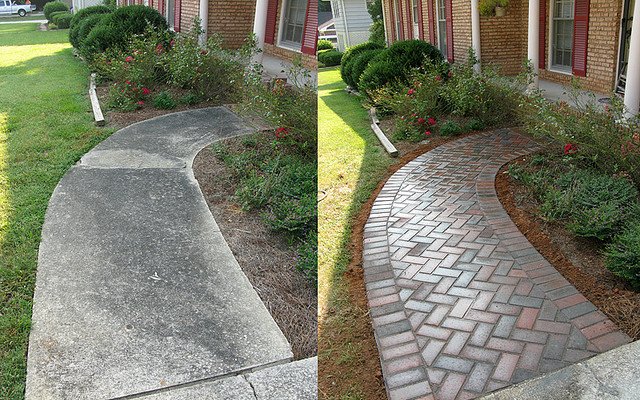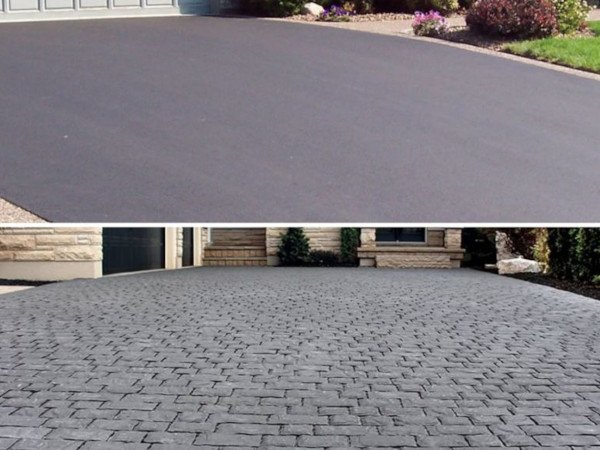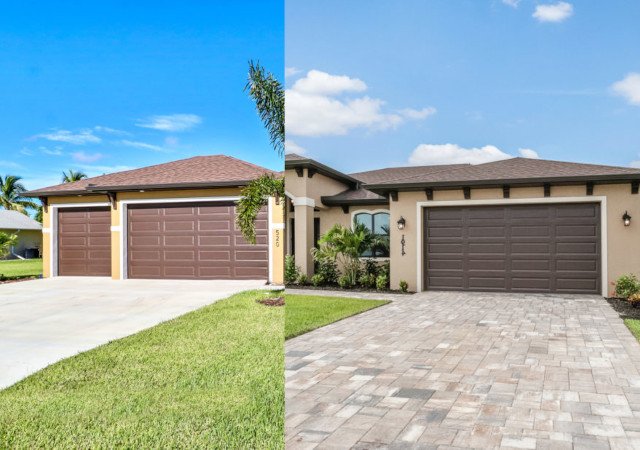Brick Vs Paver Stones

Brick and paver stones are both popular choices for creating durable and visually appealing outdoor surfaces. While there are similarities between the two, they also have distinct characteristics. Here’s a comparison between brick and paver stones to help you make an informed decision based on your specific needs:
Brick:
Advantages:
- Classic Aesthetic:
- Brick has a timeless and classic appearance, adding a traditional and charming look to outdoor spaces.
- Durability:
- Bricks are durable and can withstand heavy loads and foot traffic, making them suitable for driveways, walkways, and patios.
- Uniformity:
- Bricks are uniform in size and shape, creating a neat and organized appearance when installed.
- Stain Resistance:
- Bricks are resistant to stains, and they do not absorb liquids as readily as some other materials.
- Low Maintenance:
- Brick surfaces generally require low maintenance, with occasional cleaning to maintain their appearance.
Disadvantages:
- Limited Color Options:
- Bricks come in a limited range of colors, which may not provide the same variety as paver stones.
- Hard Surface:
- The surface of brick can be hard, potentially making it less comfortable for activities like sitting or walking barefoot.
- Difficult Repairs:
- If a brick is damaged, repairs can be more challenging and may require removing and replacing multiple bricks.
Paver Stones:
Advantages:
- Aesthetic Variety:
- Paver stones come in a wide range of colors, shapes, and patterns, offering greater design flexibility and customization.
- Durability:
- Paver stones are highly durable and resistant to cracking, making them suitable for high-traffic areas.
- Repairability:
- If a paver stone is damaged, it can be easily replaced without affecting the surrounding area, offering a cost-effective repair option.
- Flexibility:
- Pavers are flexible and can adjust to minor ground movement without cracking.
- Permeability:
- Permeable pavers allow water to pass through, reducing runoff and helping with water drainage.
Disadvantages:
- Cost:
- Paver stone installations are often more expensive than brick installations.
- Installation Time:
- Installing paver stones can be more time-consuming, especially for intricate designs.
- Weed Growth:
- The joints between paver stones may allow for weed growth if not properly maintained.
- Surface Unevenness:
- In some cases, the surface of paver installations may be uneven, making it less suitable for certain activities.
- Maintenance:
- While pavers are easy to repair, they may require more regular maintenance, including joint sand replacement and weed control.
Conclusion:
The choice between brick and paver stones depends on your priorities, budget, and the specific requirements of your project. Brick offers a classic aesthetic and uniformity, while paver stones provide greater design variety, durability, and repairability. Consider factors such as climate, design preferences, and long-term maintenance when making your decision. Additionally, consulting with a paving professional can provide valuable insights based on your specific needs.




